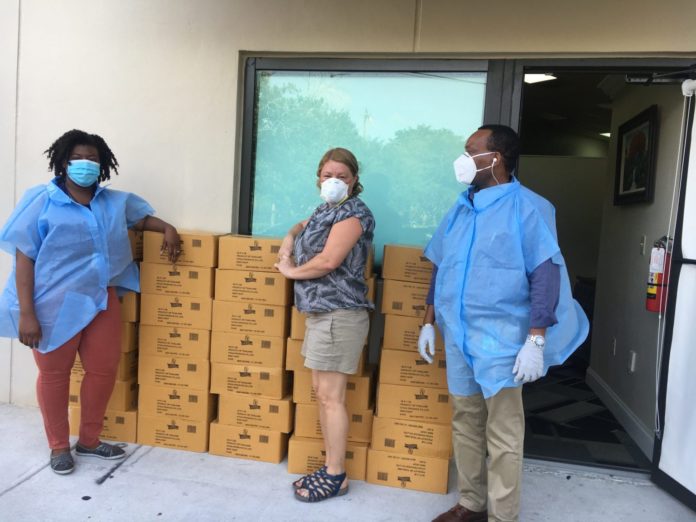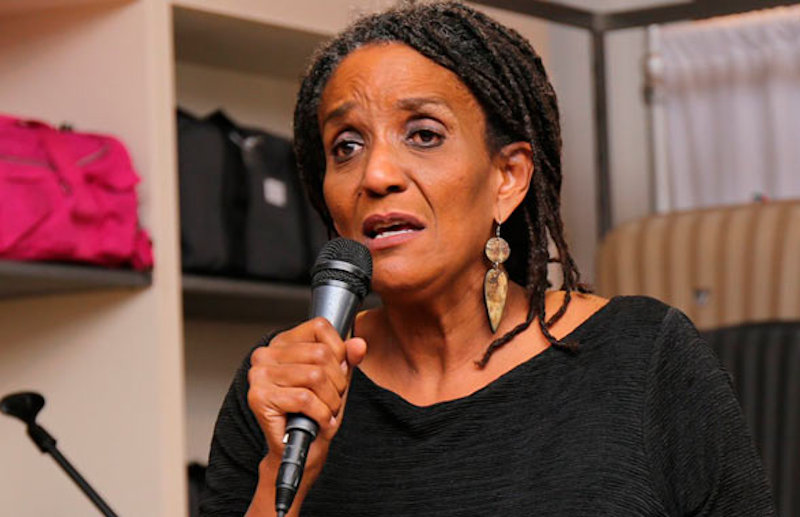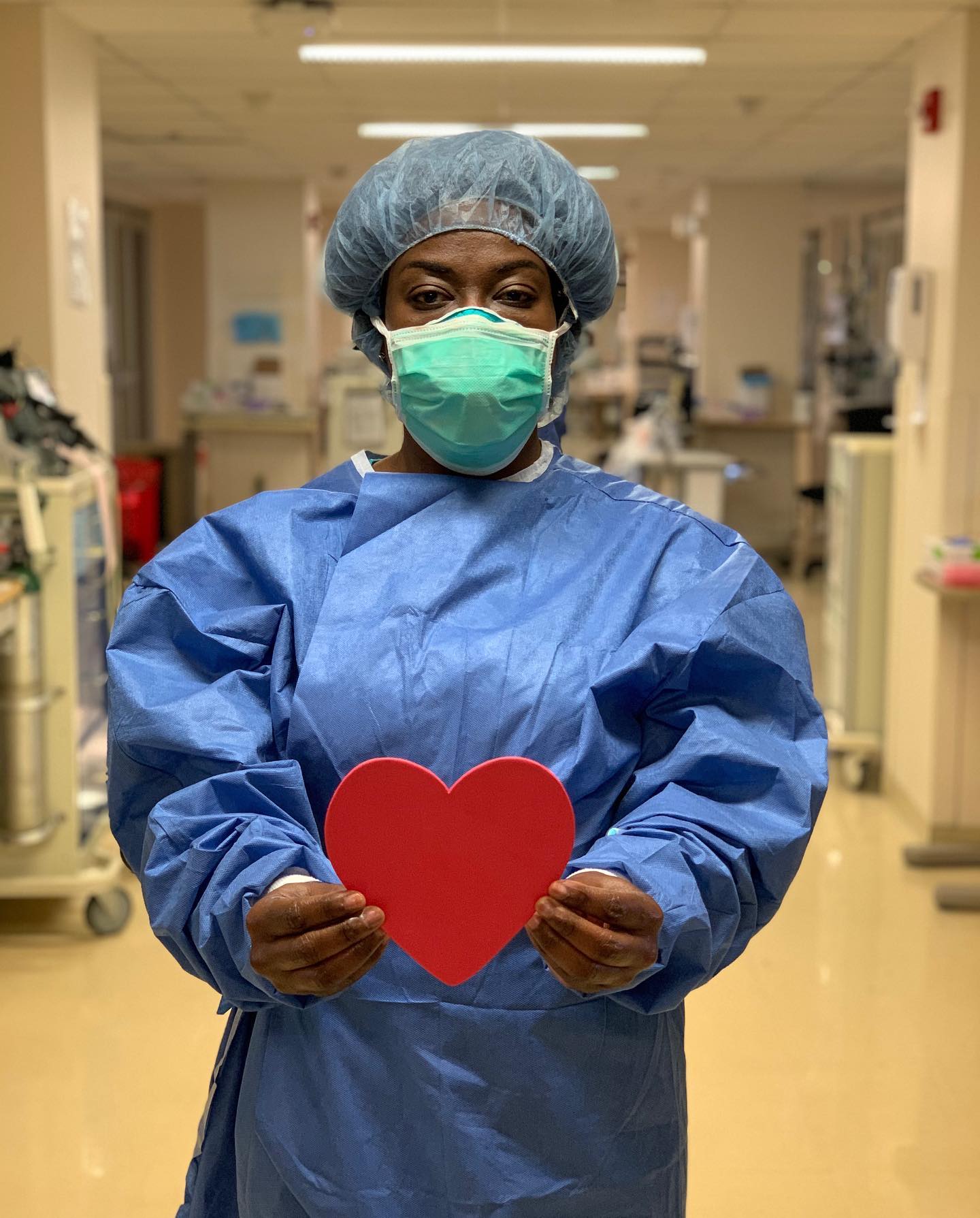
New coronavirus epicenters have sprung up in the southern United States, including areas with large Haitian populations.
Nurses everywhere, including members of the Haitian American Nurses Association of Florida, first learned how mentally and physically exhausting it was to care for coronavirus patients in March.
As cases surge in Miami and statewide, “I’m starting to see that same sense of anxiety from my members,” said Pauleen Louis-Magiste, president of the organization.
“And now we’re not just hitting a peak, but the numbers are doubling from what they were a month ago,” she also said.
Miami-Dade County, home to Little Haiti and well over 125,000 Haitian Americans, has the highest number of confirmed coronavirus cases in Florida ‒ more than double Broward County, which has the second-highest total. While access to testing and the employment situation within the Haitian community has improved somewhat since the pandemic began, the recent surge in cases is the latest reminder that the pandemic is far from over.
Health authorities in Miami-Dade reported 2,304 additional COVID-19 cases Jul. 2, bringing the county total to more than 40,200 cases. Florida has confirmed over 158,000 cases in total.
New York City, previously an epicenter of the virus, last recorded more than 2,000 new cases on Apr. 30. Cases have declined in New York, if unevenly, since then.

Many Haitians in Miami still have not returned to work, despite the partial reopening of the economy. Low-skilled, low-wage employees in particular lack access to the technology needed to conduct a job search and work remotely, if needed, according to Leonie Hermantin, communications director at the Sant La Haitian Neighborhood Center, a social services nonprofit in Miami. An estimated 40% of the population the center serves was employed in the service industry.
Parents who previously placed their children in summer camps are now supporting their children at home. The city of North Miami, for example, had about 500 children enrolled in camps last summer, but only 32 this year.
To help community members in need, Hermantin added that Sant La has an emergency fund to help cover expenses like food and rent. The center is “always running out of funds,” she said.
In March, a coalition of leading Haitian professional and grassroots organizations came together to discuss the impact of the pandemic and advocate for solutions that could benefit Miami’s Haitian community.
The coalition advocated for a walk-in site, and one opened in April, at Holy Family Catholic Church in North Miami. While there are also drive-in sites and drug stores in and around Little Haiti, getting the walk-in site was important to serve the numerous community members who do not have cars, according to Hermantin.
“At the time it was launched, there weren’t many takers, people were just not coming in,” Hermantin said. “Now, you can barely get an appointment there.”
Parents who previously placed their children in summer camps are now supporting their children at home.
Part of the demand for testing, she added, stems from employers requiring it, in order for employees to return to work.
Florida entered its second reopening phase Jun. 5, allowing bars and restaurants to open at half capacity for indoor seating. The state has since moved to stop bars from serving alcohol. Gyms, museums, and stores are now allowed to operate without capacity restrictions, although social distancing measures are required. While other governors have moved to pause reopening, Florida Gov. Ron DeSantis has indicated he does not plan on doing so.
According to Dr. Mary Jo Trepka, professor and chair of the epidemiology department at Florida International University in Miami, the high numbers of positive cases in Florida reflect the events of several weeks ago, due to the delayed onset of coronavirus symptoms.
The particularly steep increase of the past week reflects the fact that Florida “started reopening May 18, that was just the first phase. And then there were more steps of reopening after that. Of course, there was also Memorial Day weekend, and a lot of people got together,” Trepka told the Haitian Times.
Recommendations from the Centers for Disease Control and White House called for two weeks between reopening phases, if health criteria are met. Trepka said that in retrospect, waiting a little longer might have meant less new cases in the ensuing weeks.
“Probably it would have been better to wait at least a month. But it’s hard to tell if that was the situation, versus the implementation of the reopening plans. Because it did become apparent that not every establishment followed the guidelines exactly as they were supposed to,” she said.
As the economy opened back up, more people in Miami’s Haitian community returned to work. While employment still remains one of the community’s biggest needs, Hermantin said that recently, Sant La has been placing 10 to 15 people per week in jobs.
“There is a demand for jobs, the problem for us is that as an organization that is really driven by its mission, we are happy that people are working, but we want to be able to place people at decent wage jobs. And at this phase, people just want to work,” Hermantin said.
As media reports have indicated, many of the new coronavirus cases in the Miami area have been recorded among the 18 to 35 age group.
“Miami has been in a serious housing crisis. So most of the millennials live at home,” Hermantin said, noting the risk of younger workers infecting older family members.
Hospital beds in the Miami area have already started to fill up again. Since the pandemic started, the Haitian American Nurses Association has shared advice on physical and mental health to its members. The organization has also been distributing masks, for members who work at facilities that have limited the amount of personal protective equipment they provide, according to Louis-Magiste.

Medical professionals who felt a sense of security before are realizing first-hand that the fight against coronavirus isn’t over.
“Now the hospital beds are filling up again. So the same nurses that had this sense of, ‘cool, now I can do my regular nursing job,’ now are seeing their units being filled with COVID patients. Certain hospitals now are already closing certain areas, so that they can make beds [available] for COVID patients,” Louis-Magiste said.
To slow the spread of the virus, officials in Miami-Dade County have announced multiple measures, including a requirement to wear a mask in all public spaces and the banning of indoor dining past midnight. Florida’s governor has also threatened to revoke liquor licenses at bars that do not follow social distancing guidelines.
“Really bars and eating inside restaurants are probably among the more risky activities,” Trepka said.
“So I think those things will really help, but it’s going to be a couple of weeks before we see the effects of those measures,” she said of Miami-Dade County’s latest guidelines.
For Miami’s Haitian community, gaining access to real-time information from county officials remains a challenge.
For Miami’s Haitian community, gaining access to real-time information from county officials remains a challenge. While press conferences are instantaneously translated into Spanish, “we’re referred to a site to get the Creole translation, so we’re not happy about that,” Hermantin said.
“In light of the fact that such a large percentage of our workforce, of the Haitian workforce, is concentrated in the service industry, whether it’s restaurants, whether it’s health care, where they are constantly exposed to the virus, we absolutely feel it is of the utmost importance that we also get that instant translation,” she added.
In response to a request from the Haitian Times about measures to educate residents and slow the spread of the virus, a spokesperson for the Miami-Dade County Office of the Mayor shared a Jun. 28 press release about the county’s SURGE outreach teams. According to the release, the outreach teams were to visit multiple areas, to educate residents about health precautions and disseminate safety materials like masks and hand sanitizer. Little Haiti was not among the hotspot regions the teams planned on visiting.
While she acknowledged the difficulties of regulating the actions of private citizens, Trepka warned against hosting parties for the upcoming Fourth of July weekend.
“Unfortunately people just need to have a quiet Fourth of July weekend and spend it with their household members,” she added.
Louis-Magiste has been encouraging people to follow the guidelines laid out by county officials and wear their masks, especially in public.
“Wearing the mask, if we did that and practiced social distancing, we probably wouldn’t have this peak and spike in higher numbers that we’re seeing right now,” she said.
This article first appeared on the Haitian Times website.










